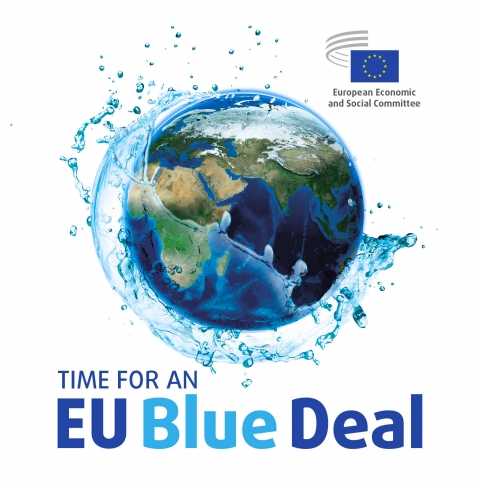European Economic
and Social Committee
Europe's Water Opportunity: EU Blue Deal Gains Momentum ahead of EU elections
The European Economic and Social Committee's call for an EU Blue Deal is garnering support from policy-makers and civil society. This momentum is driven by a growing recognition of the urgency of addressing water scarcity, and the Blue Deal's potential to provide a comprehensive solution.
A recent event at the European Economic and Social Committee (EESC) brought together key stakeholders to discuss the Blue Deal and its potential to transform water management practices across the continent, with a focus on river basins.
"We face a water crisis of unprecedented proportions", said EESC President Oliver Röpke. Referring to the upcoming European elections in June, he noted that water is a topic that concerns every citizen. "How will EU decision-makers address the issue of water and the challenges that lie ahead? It's time to ask these questions".
MEP Pernille Weiss, echoing the calls for a comprehensive solution, advocated for a dedicated water transition fund to support businesses and communities in transitioning to sustainable water practices. UN Special Rapporteur Pedro Arrojo-Agudo stressed that water scarcity and climate change recognise no borders, and called on the EU to lead the way in developing a global solution to the water crisis.
The EESC's call for an EU Blue Deal has resonated with a wide range of stakeholders, including Compagnie Nationale du Rhône (CNR), a French public interest company that manages the Rhône River. CNR's Director of Water Resources, Eric Divet, shared the company's successful track record in sustainable water management, including efforts to restore wetlands, improve river biodiversity and adapt to climate change.
The European Commission is expected to unveil its water resilience initiative in the coming months. The EESC stands ready to collaborate with the EU institutions and stakeholders to ensure that its proposals for an EU Blue Deal are part of the priorities of the next European Commission. (gb)
